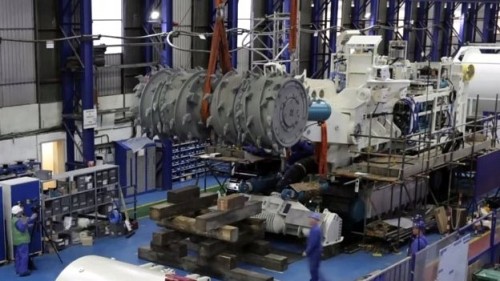Time moves like molasses as they say here, but it moves.
Almost exactly a year ago I wrote a post called Mining the Seabed. Almost exactly a year before that I wrote a post about the possibility of sending robots to mine asteroids. All science fiction I heard you say, but oh wait.
A couple of weeks ago Nautilus Minerals, a Canadian mining corporation, signed a deal with the Papua New Guinea government to start digging (mining) the seabed just off their coast.
The mining will be done from the surface. A series of large machines (310 tonnes), one of which we see in the photo above, will be operated from ships, placed on the seabed and will effectively break up the top layer so that the ore can be pumped up as slurry (muddy stuff).
Now this doesn’t sound too good to me, but the operators claim that “It’s a resilient system and studies show that life will recover in 5-10 years. An active venting site 1km to the south East has the same bugs and snails and the current will carry the bugs and snails to the mine site. We expect it to recover quite quickly.”
Greenpeace don’t agree. The truth is we don’t really know who is right. What we do know though is that there is big money involved. The bed is rich in gold and copper, and we need this stuff for far more than wedding rings and rheumatism charms.
Now as some of you will know, my mission in life is to promote responsible innovation through my work at the Bassetti Foundation, and we can take a look at the developments above from this perspective. We all use gold and copper, and it is in great demand. My computer won’t work without electricity, copper cables, solder, silicon etc, so we can be as forthright as we like but we are the ones creating the demand.
Companies are looking to supply us and make a profit, there now seems to be a viable mining approach that will involve getting it from under the oceans. Nobody will be able to stop them doing it, so we need to think about how they are going to do it, and where.
There is probably no real way of knowing how quickly the seabed will reform or how much damage is going to be caused, there are no qualified experts in mining to conduct the operations (it’s a first time gig) and international regulation still needs to be drawn.
There does not seem to have been much public debate, we won’t be able to monitor proceedings ourselves and at the best of times, mining is a dirty affair.
So this could be a disaster waiting to happen, or it could be a fantastic opportunity to create a framework that could address all of the problems above and be applicable in other fields.
Last year some academics published an article about their experiences working in a geoengineering project. Similar set of problems as described above, but social scientists were involved in the project and participated in the decision-making process. The outcome was extremely interesting, the project scientists decided to suspend their research and rethink their positions. The article is free to download here, where there is also a more precise description. It’s easy to read and very interesting.

3 thoughts on “Deep Sea Mining Agreement”